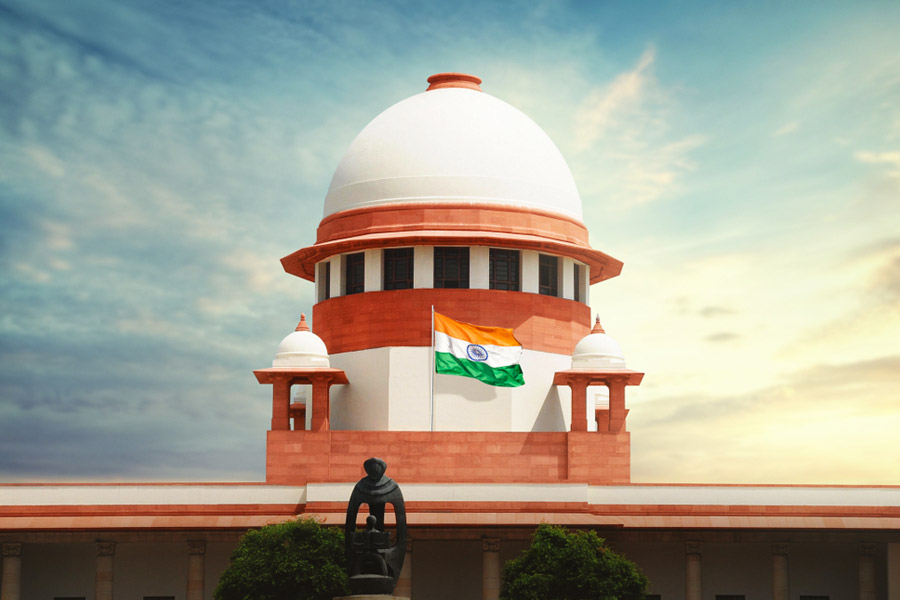Citizens have no fundamental right to know about political parties’ sources of funding, the Centre has told the Supreme Court, defending its controversial electoral bonds scheme that facilitates anonymous donations to parties.
Critics say the scheme, introduced in 2018, allows individuals and organisations with questionable credentials to anonymously donate huge sums to political parties, without any accountability, and thus influence the course of national politics.
The Association for Democratic Rights (ADR), CPM and some individuals have challenged the constitutional validity of the electoral bonds scheme.
The government’s submission came in a four-page note from attorney-general R. Venkataramani ahead of the first hearing of the matter, on Tuesday, by a five-judge constitution bench headed by Chief Justice D.Y. Chandrachud.
The Centre has argued that political funding through electoral bonds is fully tax-compliant as it is done through bank channels. It has also contended that it’s not for the judiciary to suggest a better or different policy formulation, and that the issue should be left to parliamentary debate.
“The scheme under challenge is regulatory within the scope of Article 19(2) of the Constitution,” the government said, referring to provisions relating to reasonable restrictions on citizens’ fundamental rights.
“It facilitates transfer of funds to political parties of one’s choice through banking channels instead of direct inter party transfer and ensures transfer by requiring tax abidance.”
The government added: “In this way, it is a departure from prevalent modes of contributions which were not regulated. The scheme does not impinge upon any existing right of any person and cannot be said to be repugnant to any right under Part III (Fundamental rights) of the Constitution.
“In the absence of such repugnance, the scheme will not be illegal. A law which is not so repugnant cannot be voided for any other reason. Judicial review is not about scanning State policies for the purposes of suggesting better or different prescriptions.”
The petitioners have argued that citizens have a right to know, as a facet of the right to freedom of expression, and are therefore entitled to have access to the details of contributions to political parties. They have maintained that any restrictions on citizens’ right to know the identities of the donors are impermissible.
However, the attorney-general has contended that citizens have no general right to know anything, or everything, without being subjected to reasonable restrictions, and that the “right to know for the general health of democracy will be too over-broad”.
The government has further argued that the apex court’s earlier judgments in ADR vs Union of India (2002) and PUCL (People’s Union for Civil Liberties) vs Union of India (2003), which upheld citizens’ right to know the criminal antecedents of an election candidate, are not relevant to the present case.










